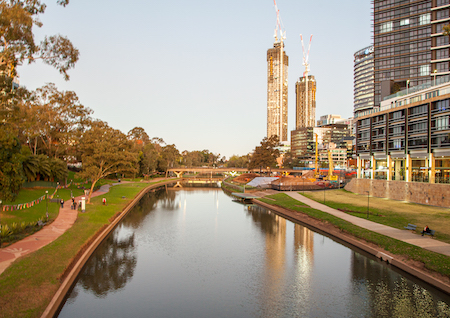Public ideas
Pope Francis on artificial intelligence – “exciting and fearsome”
Pope Francis spoke on artificial intelligence at the meeting of the G7 in Puglia, Italy, last month. He accepts that its uptake is inevitable:
It is now safe to assume that its use will increasingly influence the way we live, our social relationships and even the way we conceive of our identity as human beings.
The question of artificial intelligence, however, is often perceived as ambiguous: on the one hand, it generates excitement for the possibilities it offers, while on the other it gives rise to fear for the consequences it foreshadows. In this regard, we could say that all of us, albeit to varying degrees, experience two emotions: we are enthusiastic when we imagine the advances that can result from artificial intelligence but, at the same time, we are fearful when we acknowledge the dangers inherent in its use.
He goes on to describe the relationship between humans and the tools they craft, including AI. It’s a complex interrelationship, which sees re-distributions of power and the emergence of previously seldom-considered moral questions as new tools come into use. We should welcome AI’s capacity to improve human well-being, and, as with other tools such as nuclear energy, we should work to prevent its appropriation for evil purposes.
We should realise that AI is not “another human being”, and that “it cannot propose general principles”.
We need to ensure and safeguard a space for proper human control over the choices made by artificial intelligence programs: human dignity itself depends on it.
That is why its use and its limits have to be determined in a morally informed political realm. Quoting from his encyclical Fratelli Tutti he reminds us of the need for a “healthy politics”, but
… for many people today, politics is a distasteful word, often due to the mistakes, corruption and inefficiency of some politicians. There are also attempts to discredit politics, to replace it with economics or to twist it to one ideology or another. Yet can our world function without politics? Can there be an effective process of growth towards universal fraternity and social peace without a sound political life?”
Lucy Turnbull on ideas for our cities
Joe Walker has brought us a podcast: Lucy Turnbull – urbanism, YIMBYism, and how to solve Australia’s housing crisis.
It’s a 47-minute discussion between Lucy Turnbull and Joe Walker about all those issues and more, in a free-ranging but highly-informative discussion.
Turnbull understands how cities work, and how they don’t work. She has been Lord Mayor of Sydney and Chief Commissioner of the Greater Sydney Commission, and her political connections transcend partisan boundaries. She understands cities as interactively complex systems, shaped by geography, history, public ideas, and technologies.
Cities are places where people can bump into one another, creating social and business opportunities. They can be places that attract the energetic and creative.

Parramatta – another city centre
Whether these opportunities are realized or not depends largely on the way cities are shaped by public policy on physical planning, zoning, and transport. Visions such as the “30-minute city” and the “canopy city” are practical and achievable, and if realized can unleash productivity.
Understandably the discussion is largely about Sydney. But if you live in any of our large cities this podcast is worth listening to (or reading its transcript), because Sydney seems to be well ahead of the pack in reconciling the issues of sprawl and concentration. Sydney is well on the way to becoming a multi-nodal city.
Turnbull’s vision is that of a realistic optimist. She sees the present housing supply crisis as an opportunity for change in the way we live in cities and enjoy the amenities and productivity of urban life.
Turnbull and Walker talk about cities as complex physical and social systems. On a more specific level five specialized urban academics at RMIT have a Conversation contribution examining why so few people in Australia cycle for transport. They list six ideas, all practical. But they miss one crucially important factor: in Denmark, Germany, the Netherlands and similar countries the person behind the wheel of a semi-trailer or a car is almost certainly also a cyclist. Here we still have mindset that separates “cyclists” and “drivers”.
Comparative advantage explained
The world is at risk of an outbreak of beggar-thy-neighbour style protectionism. Think, for example, of the trade wars between the US and China, where the US at least seems to be forgetting that trade can and should be a win-win process.
Writing in The Conversation Martin Richardson of ANU has a simple and clear explanation of the theory of comparative advantage in determining how countries can gain the greatest benefit from trading with one another.
Comparative advantage, he reminds us, is a country’s ability to produce particular goods and services at lower opportunity costs than its trading partners.
Richardson’s explanation is concise. A longer, explanation, as taught in economics classes, is in LibreTexts -- The Theory of Comparative Advantage- Overview. This explains the conceptual difference between the easily-understood idea of absolute advantage and the counterintuitive idea of comparative advantage.
It’s one reason Australia should be able to develop a comparative advantage in generating electricity from solar panels, if those panels are on land with little opportunity for alternative uses – of which we have a surfeit.
The textbooks use Ricardo’s example of wine and cloth produced in Portugal and England respectively. To suggest another example, imagine that southern Germany is able to produce green hydrogen using solar panels more cheaply than Australia, because it can use low-cost Gastarbeiter labour and is closer to industrial users of hydrogen. But if that means sacrificing land used for strawberries and asparagus, it’s better for both Germany and Australia if Germans import green hydrogen from Australia.